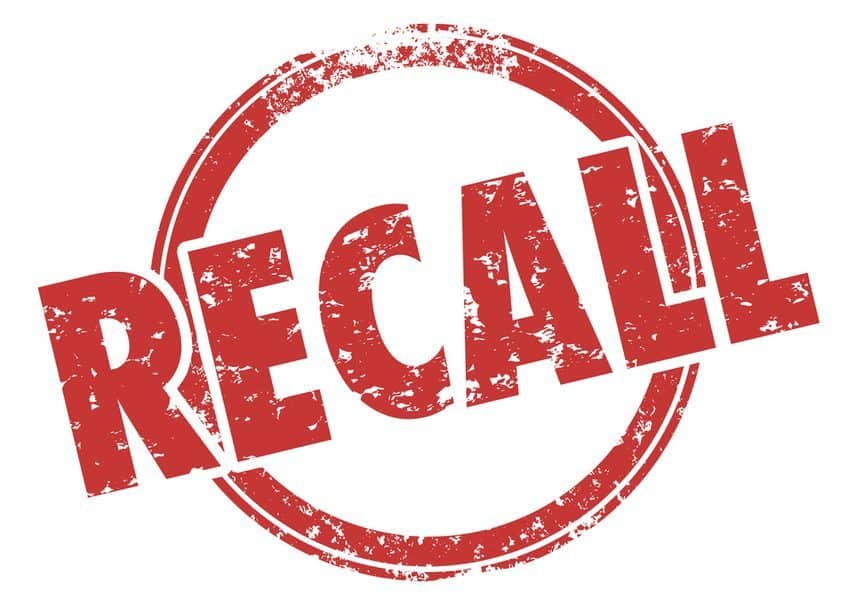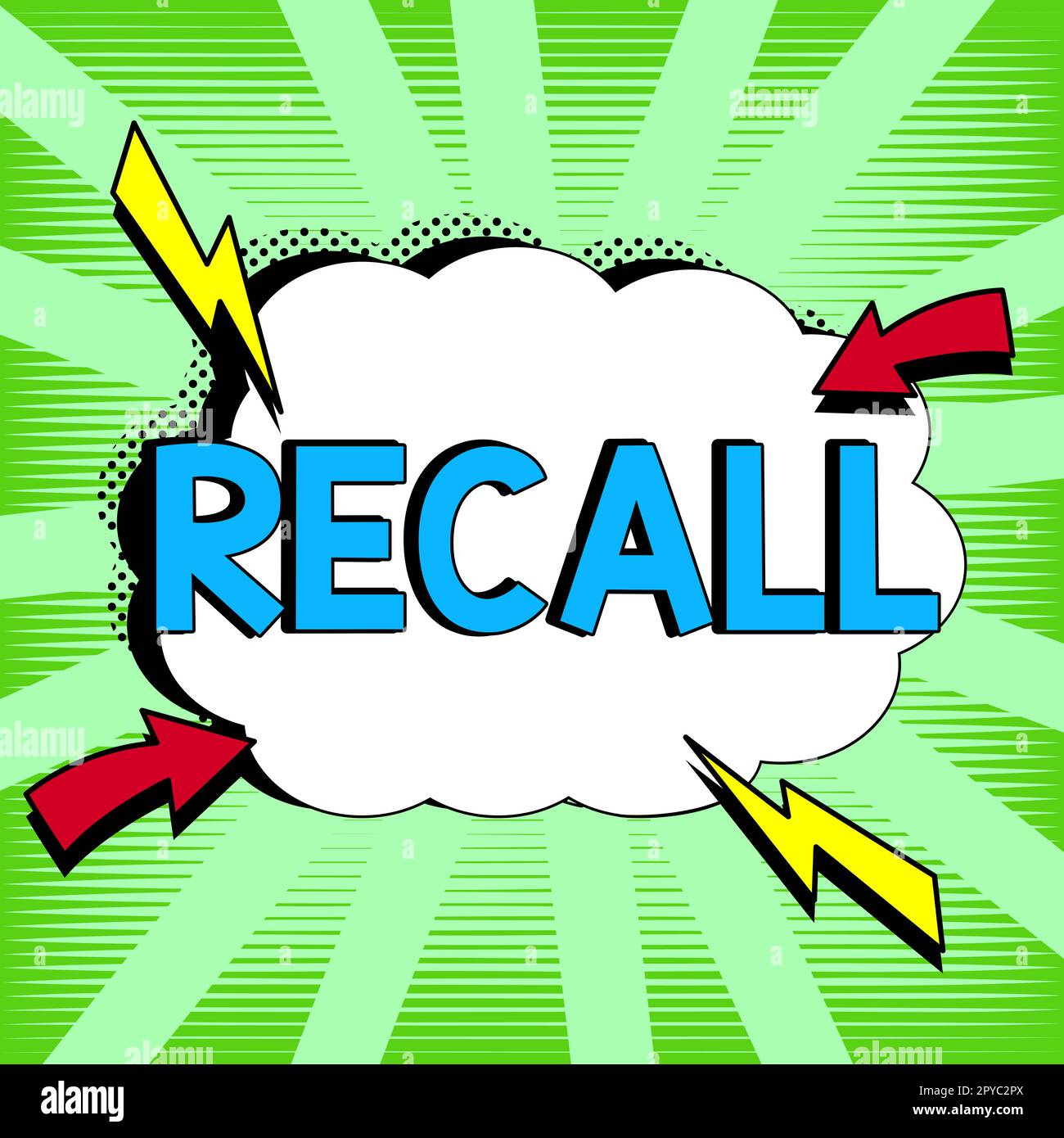When we think about the things our families use and eat every day, it's natural to assume they are safe. From the cars we drive to the quick meals we pack for school, like perhaps a Lunchables kit, we trust that these items meet important safety standards. However, sometimes things go wrong during production or design, and that's when a safety alert, often called a recall, becomes very important. It’s a way for companies and safety groups to let us know about a potential problem, helping to keep everyone out of harm's way. These alerts are not just for big things, like a car or a home appliance; they can also apply to everyday food items that might find their way into a lunchbox. So, it's really about making sure everything, big or small, is up to snuff for our peace of mind.
The idea of a recall, whether it’s for a vehicle or something as common as a pre-packaged snack, is fundamentally about protecting people. It’s a serious step taken when a product might pose a risk, perhaps something that could cause injury or make someone unwell. Think about it, we rely on these items daily, and knowing that there are systems in place to flag issues is quite reassuring. This system, you know, it’s actually a pretty big deal, and it helps to make sure that if there's a problem, we get told about it quickly and clearly.
Knowing how these safety announcements work can truly help you stay informed and make smart choices for your household. It's not just about reacting when you hear about a problem; it's also about knowing where to look for information and what steps to take. For instance, if there were ever a "recall lunchables" notice, understanding the process would help you act fast and keep your family safe. So, in some respects, being aware of these systems is a bit like having a helpful guide for staying protected.
- Nee York Shooting
- How To Play Jessie
- How To Use Face Slimming Tool
- Sesame Street Kermit And Grover
- Payton Koch Naked
Table of Contents
- What Does a "Recall Lunchables" Alert Mean for Families?
- How Do We Find Out About a "Recall Lunchables" or Other Product Alerts?
- Who Looks Out for Our Safety Regarding "Recall Lunchables" and Other Goods?
- Why Do Products Like "Lunchables" Sometimes Need a Safety Check?
- What Happens When a "Recall Lunchables" Is Announced?
- Are All Recalls Similar, Even for "Recall Lunchables" Versus Cars?
- What Should You Do If There's a "Recall Lunchables" or Another Item?
- Keeping Your Loved Ones Protected- Beyond "Recall Lunchables"
What Does a "Recall Lunchables" Alert Mean for Families?
When a product like "Lunchables" gets a safety alert, it means that there's been an announcement about a potential problem with it. This could be anything from a mislabeled ingredient to a concern about how it was made. For families, this kind of news means it's time to pay close attention and perhaps stop using the item in question. It’s a very direct message telling us that something isn't quite right with the product, and that it might not be safe to eat. So, if you hear about a "recall lunchables" situation, it’s really about being cautious and taking steps to protect your household members.
- Monica Ruiz House
- Tim Burton Movies On Netflix
- Blake Lively Zodiac Sign
- Quality Record Player
- Natalia Rocha
How Do We Find Out About a "Recall Lunchables" or Other Product Alerts?
Finding out about product safety notices can happen in a few ways. For things like cars, there are tools where you can put in a vehicle identification number, or VIN, to quickly see if a specific car has any unaddressed safety issues from the past fifteen years. This kind of lookup helps owners get up-to-date information. For other items, like car seats, tires, or even equipment, there's also information available. You know, these systems are set up to help people stay informed. When it comes to a "recall lunchables" or other food items, the method might be a bit different, but the goal is the same: to get the word out to the public.
The government also plays a part in making sure we know about unsafe items. There's a group of six federal organizations, all with different areas of focus, that have come together to help warn the American people about things that might be hazardous or have problems. They pool their information to create a wider safety net. Data from their public web pages, for example, from sites like cpsc.gov, is regularly updated, sometimes every week, as new alerts are made public. So, if there was a "recall lunchables" announcement, it would likely be shared through these official channels, making it easier for everyone to find the relevant details. It’s quite a comprehensive effort, actually.
Who Looks Out for Our Safety Regarding "Recall Lunchables" and Other Goods?
Several groups work hard to keep us safe from faulty products. Vehicle, engine, and equipment makers, for instance, have a duty to design and build their items so they meet certain emission rules. This means they have to follow strict guidelines to ensure their products are not just functional but also safe for the environment and for us. For food items, like "Lunchables," different agencies would oversee their safety, making sure they meet food preparation and ingredient standards. It’s basically a shared responsibility to make sure what we buy is good to go.
Why Do Products Like "Lunchables" Sometimes Need a Safety Check?
Products, even ones we use all the time, can sometimes have issues that weren't caught during the initial checks. For instance, General Motors once had to call back over 62,000 vehicles because of a problem with the brake pressure that could cause fires. This included certain Chevrolet Silverado models from 2019 to 2024. These kinds of problems can arise from a design flaw, a manufacturing mistake, or even a bad batch of parts. So, too, with food products, a "recall lunchables" could happen for reasons like unexpected ingredients, problems with how the food was handled, or even packaging issues that make the food unsafe to eat. It's all about finding those hidden problems before they cause trouble.
What Happens When a "Recall Lunchables" Is Announced?
When a safety alert is issued, the company that made the product usually gives instructions on what to do next. For example, if there was a problem with certain air conditioners, consumers were told to get in touch with the manufacturer right away for a free fix or a refund, with the amount based on when they bought it. This "remedy data" can change daily as more information comes in. If there were a "recall lunchables," the advice would likely be to stop eating them immediately and then follow the company's instructions for getting a replacement or your money back. It's a pretty straightforward process, usually, to get things sorted out for people.
Are All Recalls Similar, Even for "Recall Lunchables" Versus Cars?
While the items involved in safety alerts can be very different, the basic idea behind them is quite similar. Whether it's seat belts, tires, airbags, or even driver assistance systems in vehicles, the goal is always to protect the public from potential harm. We've seen big situations like the Takata airbag safety spotlight, which affected many cars. Ford also had to call back some Mustang Mach-E cars because people might get stuck inside. These examples show that any product, no matter how complex or simple, can have a problem that needs fixing. So, in a way, the process for a "recall lunchables" would follow similar steps to these larger vehicle alerts, just applied to a different kind of product. It's about safety first, always.
What Should You Do If There's a "Recall Lunchables" or Another Item?
If you hear about a safety alert for something you own, the first thing to do is stop using it right away. Then, it's important to find the specific details about the alert. Many official websites allow you to search for particular alerts, whether it's for a vehicle, an engine, or a piece of equipment. You can often click a link to get more information, which usually opens a new page on the issuing agency's website. If, for instance, there was a "recall lunchables" situation, you'd look for information from the food safety authorities, and they would tell you exactly what steps to take. It's about getting the facts straight and then acting on them.
Keeping Your Loved Ones Protected- Beyond "Recall Lunchables"
Staying on top of product safety is an ongoing effort. It's not just about what we put in our bodies, like a "recall lunchables" situation, but also about the safety of the items that transport us, keep us warm, or entertain us. Vehicle manufacturers, for example, are always required to build their products to meet certain safety rules, including those for emissions. This commitment to safety spans across many different kinds of goods, from the cars we drive, like the 2019 to 2024 Chevrolet Silverado models that were mentioned, to the tires and airbags that keep us safe on the road. It’s a very broad effort, actually, to make sure everything we interact with is as safe as it can be.
The lessons learned from vehicle safety issues, like those involving seat belts, tires, and airbags, or even newer driver assistance technologies, apply to all consumer products. The same care and attention to detail that goes into preventing vehicle theft or making adapted vehicles safe for everyone also applies to the food we eat. So, if there's ever a "recall lunchables" situation, it’s a sign that the same rigorous safety checks and public notification systems that protect us from car troubles are also at work for our groceries. It’s all part of a larger system designed to keep us out of harm’s way, no matter what we’re using or consuming.
In summary, this article has discussed the broad topic of product safety alerts, often called recalls, drawing from general information about vehicle and consumer product safety. We explored how these alerts work, from the ways we find out about them to the agencies responsible for overseeing safety, and the reasons why products, including a hypothetical "recall lunchables," might need such an announcement. We also looked at what steps consumers should take when an alert is issued and how the principles of safety apply across a wide range of goods, from cars to everyday food items. The goal is always to provide clear information so everyone can stay safe and make informed choices about the products they use.
- Who Does Evan End Up With In Royal Pains
- Crochet Sleeping Mask
- Victoria Secret Bodysuit Long Sleeve
- Key And Peele Gay Wedding
- Who Is Ashlee Braxton Mom


